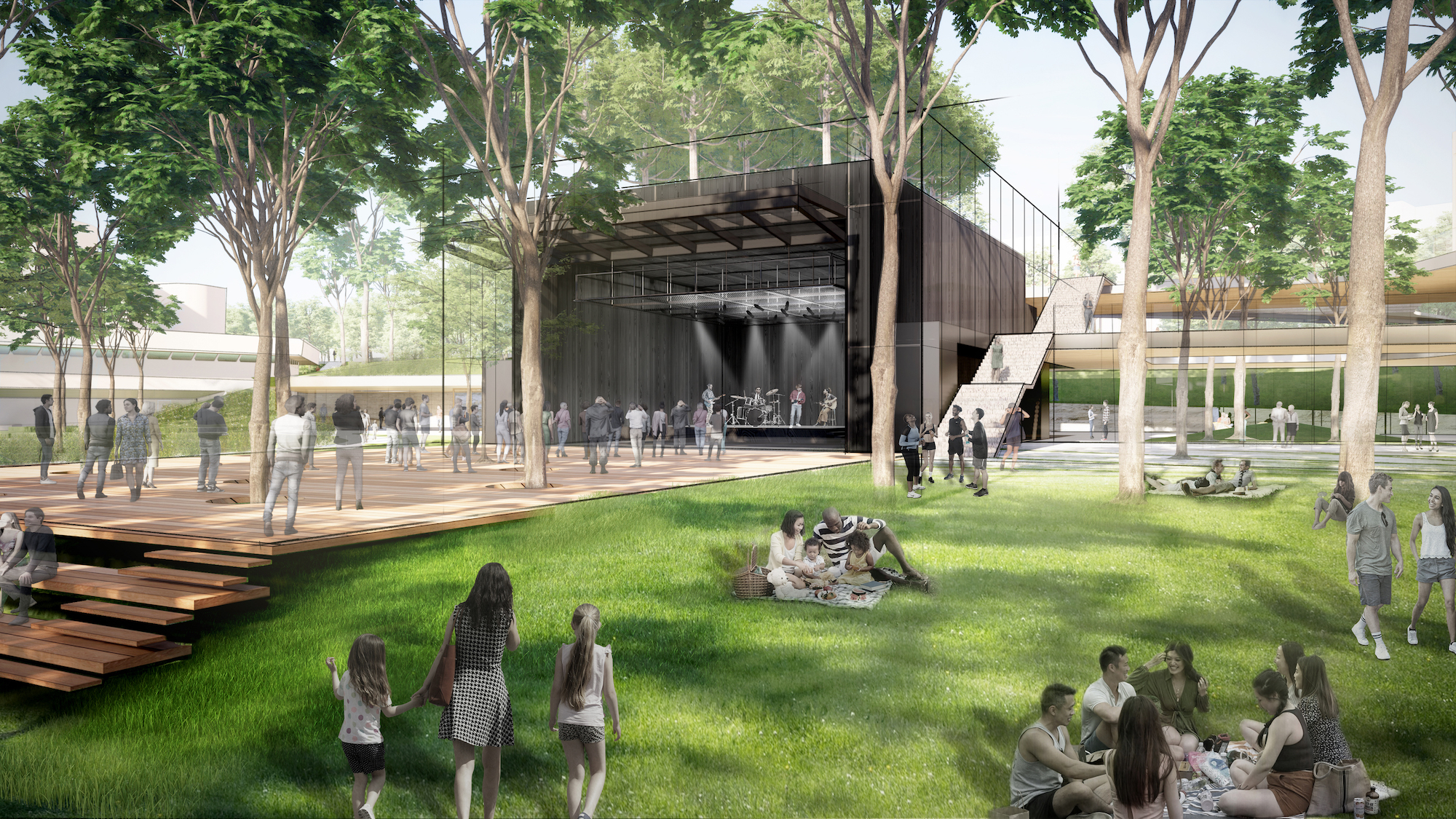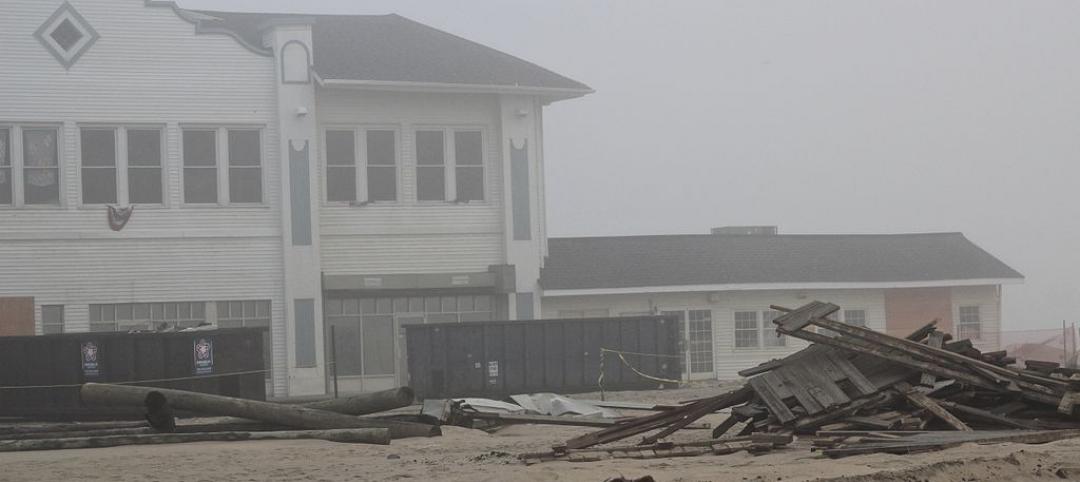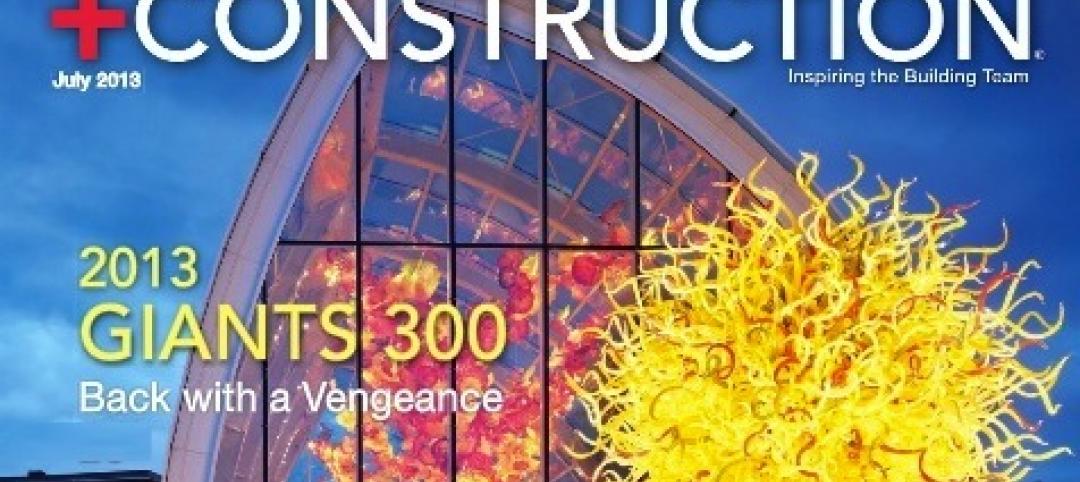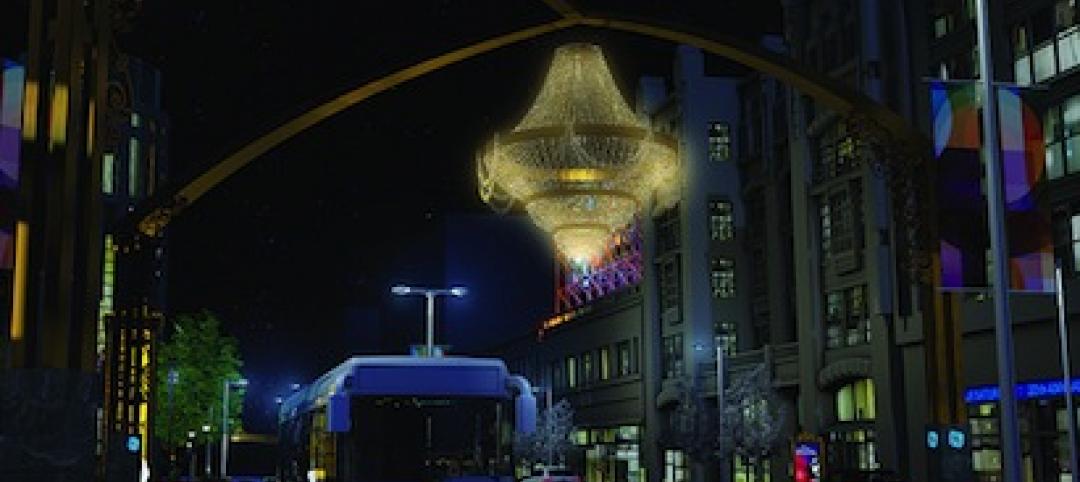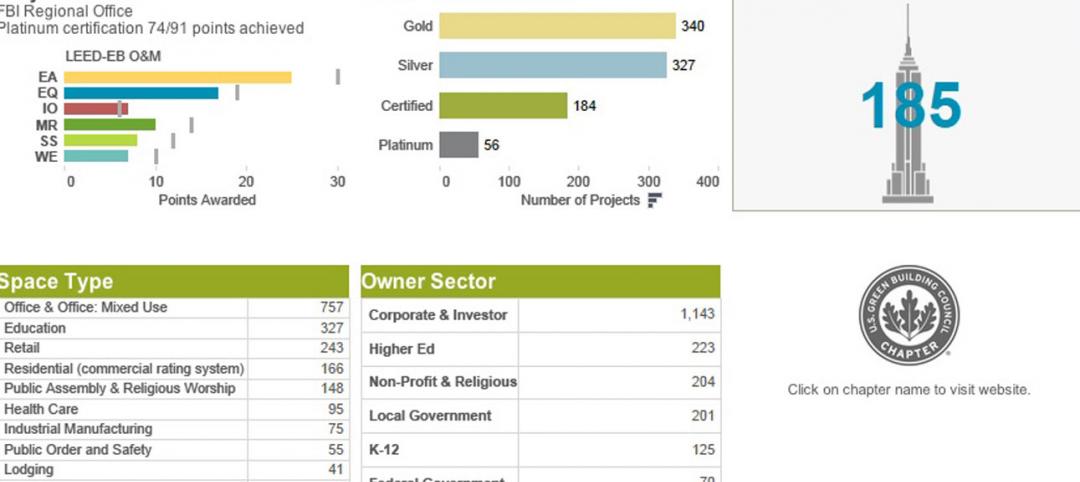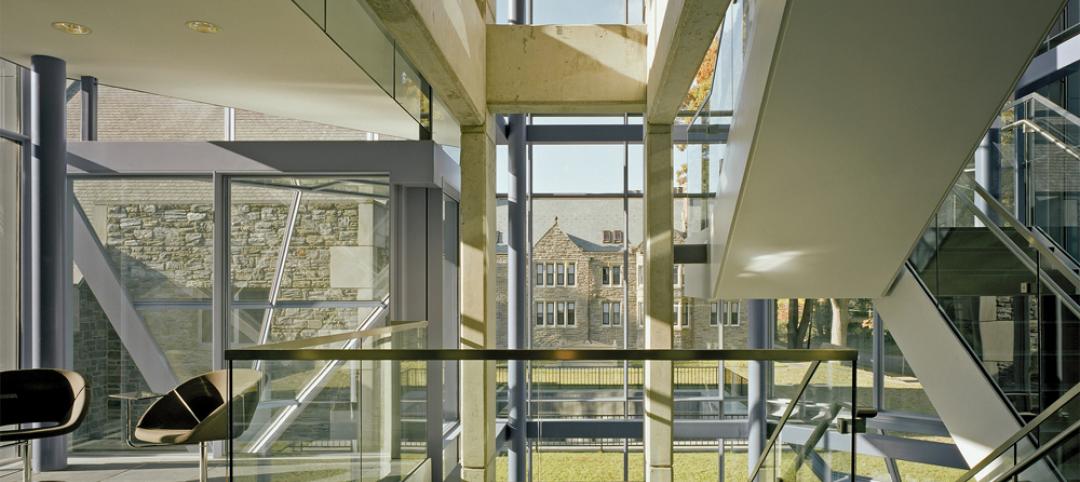Diller Scofidio + Renfro recently presented plans to restore the Kalita Humphreys Theater at the Dallas Theater Center (DTC) in Dallas. Originally designed by Frank Lloyd Wright, this theater is the only freestanding theater in Wright’s body of work, DS+R said in a news release. “The Kalita Humphreys Theater is a mid-century architectural masterpiece in need of a thoughtful update after several generations of cultural, technological, and urban change,” says Kevin Moriarty, DTC’s artistic director.
“Over the years, a combination of neglect and additions have compromised the building’s integrity,” the release says. “Restoring the Kalita Humphreys Theater to its original state requires a multifaceted approach that involves surgical extraction, selective reconstruction, careful preservation, and faithful reinterpretation of Wright’s design intent.”
The design plan calls for removal of superfluous elements added over time, including the 1968 lobby extension that compromised the original massing of the building. Architectural details will be refurbished, including mid-century light fixtures, air grilles, door handles, window moldings, and furniture.
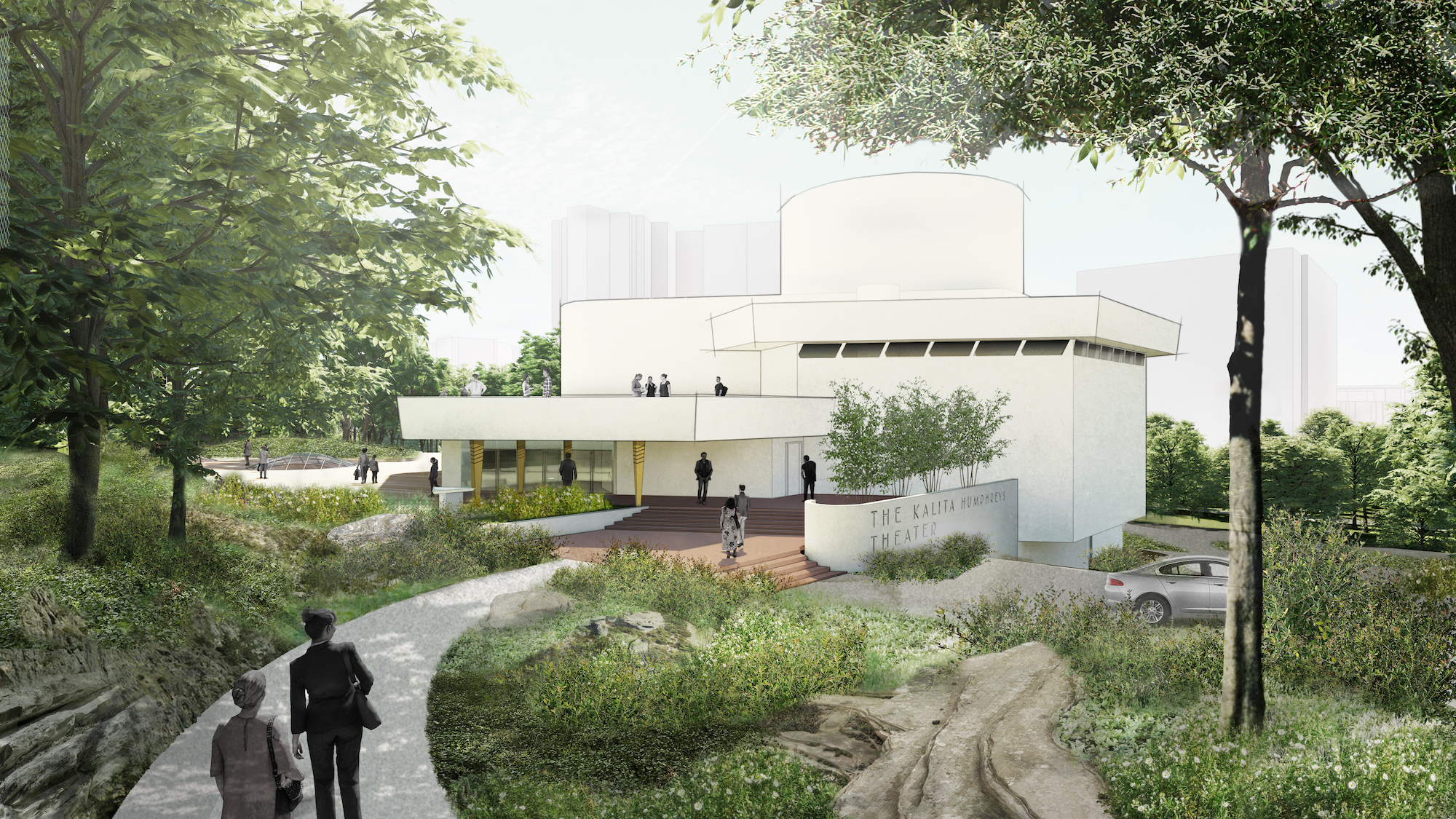
The building will undergo modernization including upgraded lighting, AV, stage infrastructure, and other back-of-house functions to improve flexibility for a wider range of performances. Seating will be re-raked to resemble the 1959 auditorium, but each row will be staggered to improve sightlines. A central information point and historical center in the campus lobby will orient and engage visitors.
The theater’s surrounding landscape will get a makeover to make the site more engaging throughout the day. Over the years, the bucolic setting has been fragmented by large parking lots and a tangle of roadways. Bluffs removed as part of the 1968 addition are irrecoverable, but a lightly reshaped landscape will echo the original topography. Invasive bamboo will be removed in favor of native grasses and shrubs, helping to control erosion and absorb runoff. Improved visual and physical linkages will provide connections to adjoining trails.
New courtyards and plazas, upper-level green roofs, a bosque, walkways, and a restaurant and café will be constructed. A 100-seat black box theater with a walkable ceiling grid and an operable façade will open onto one of the courtyards, creating an indoor/outdoor venue with flexible seating configurations. A multipurpose pavilion will offer a flexible infrastructure for formal and informal events, including public classes and workshops. More cellular spaces in the rehearsal and education ‘tower’ will house small, immersive productions.
Also on the project team:
Design Architect: Diller Scofidio + Renfro, (Partner-in-Charge: Charles Renfro)
Local Architect: BOKA Powell
Landscape Architects: Reed Hilderbrand
Historic Preservation: Harboe Architects
Structural Engineer: Robert Silman Associates
Civil & Traffic Engineer: Pacheco Koch
Mechanical, Electrical & Plumbing Engineer: Syska Hennessy Group
Construction Manager: Beck Construction
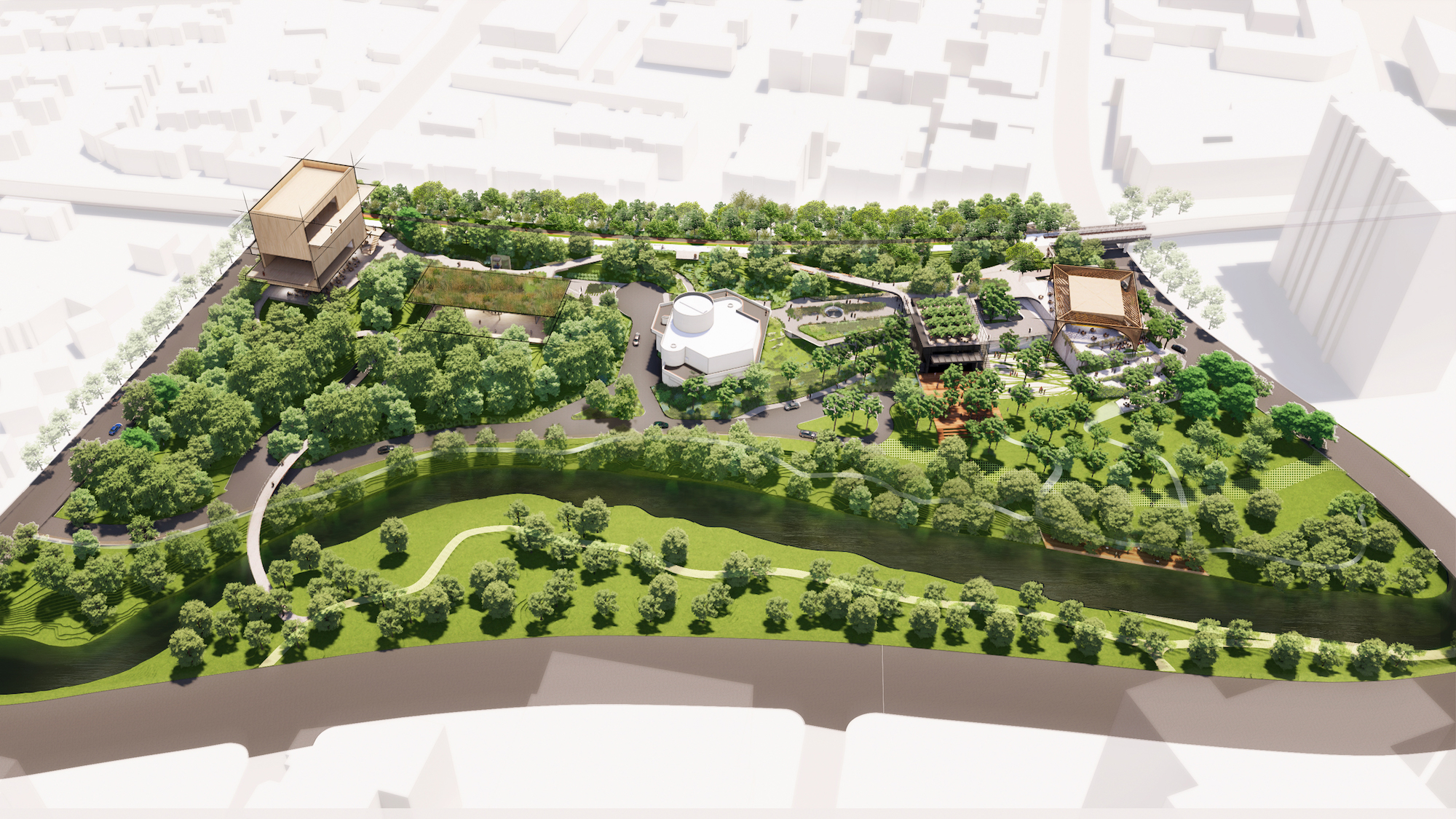
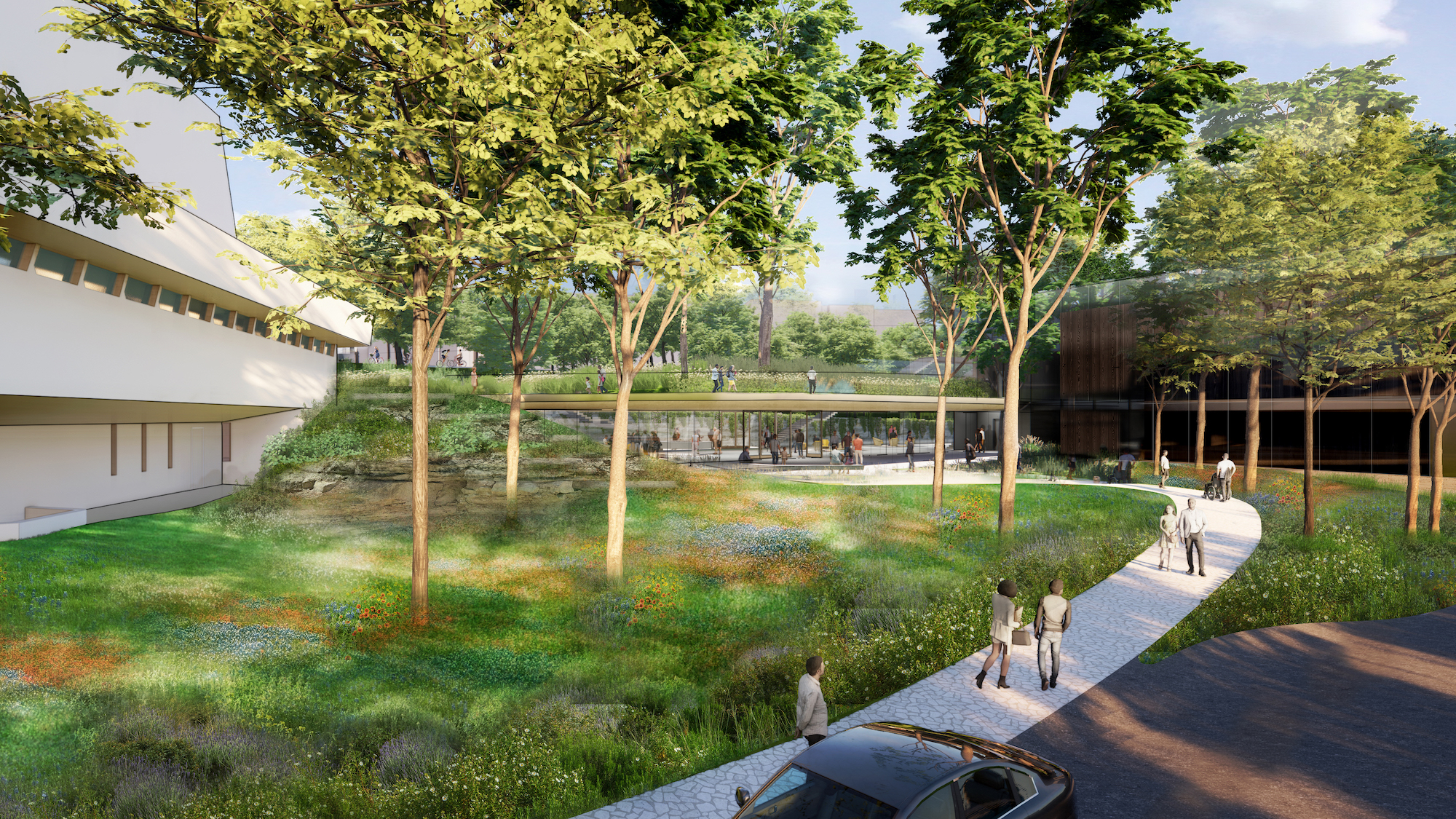
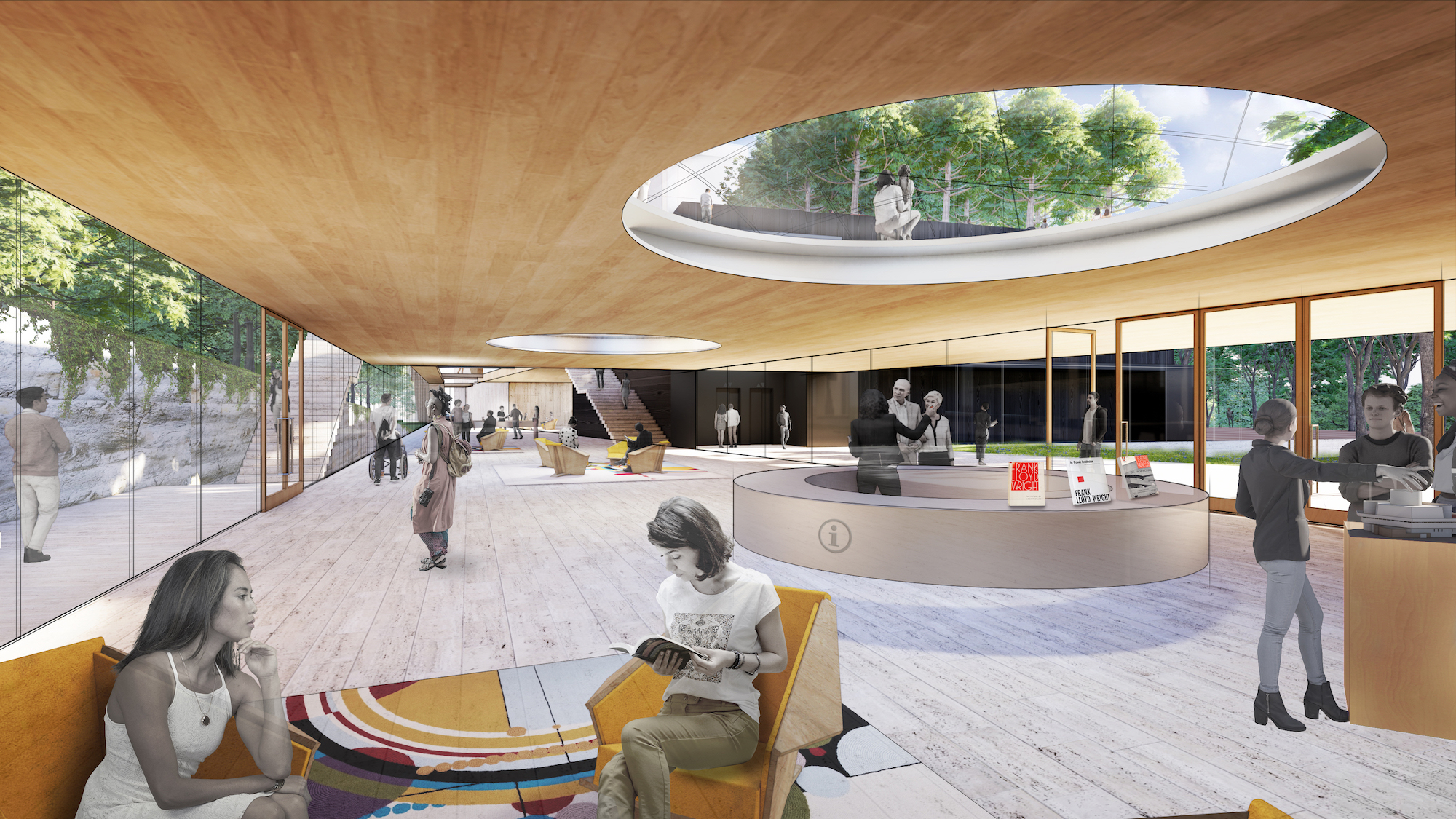
Related Stories
| Jun 12, 2014
Austrian university develops 'inflatable' concrete dome method
Constructing a concrete dome is a costly process, but this may change soon. A team from the Vienna University of Technology has developed a method that allows concrete domes to form with the use of air and steel cables instead of expensive, timber supporting structures.
| Jun 9, 2014
Green Building Initiative launches Green Globes for Sustainable Interiors program
The new program focuses exclusively on the sustainable design and construction of interior spaces in nonresidential buildings and can be pursued by both building owners and individual lessees of commercial spaces.
| May 29, 2014
7 cost-effective ways to make U.S. infrastructure more resilient
Moving critical elements to higher ground and designing for longer lifespans are just some of the ways cities and governments can make infrastructure more resilient to natural disasters and climate change, writes Richard Cavallaro, President of Skanska USA Civil.
| May 20, 2014
Kinetic Architecture: New book explores innovations in active façades
The book, co-authored by Arup's Russell Fortmeyer, illustrates the various ways architects, consultants, and engineers approach energy and comfort by manipulating air, water, and light through the layers of passive and active building envelope systems.
| May 19, 2014
What can architects learn from nature’s 3.8 billion years of experience?
In a new report, HOK and Biomimicry 3.8 partnered to study how lessons from the temperate broadleaf forest biome, which houses many of the world’s largest population centers, can inform the design of the built environment.
| May 13, 2014
19 industry groups team to promote resilient planning and building materials
The industry associations, with more than 700,000 members generating almost $1 trillion in GDP, have issued a joint statement on resilience, pushing design and building solutions for disaster mitigation.
| May 11, 2014
Final call for entries: 2014 Giants 300 survey
BD+C's 2014 Giants 300 survey forms are due Wednesday, May 21. Survey results will be published in our July 2014 issue. The annual Giants 300 Report ranks the top AEC firms in commercial construction, by revenue.
| May 2, 2014
World's largest outdoor chandelier tops reworked streetscape for Cleveland's PlayhouseSquare
Streetscape project includes monumental gateway portals, LED signage, and a new plaza, fire pit, sidewalk café, and alfresco dining area.
| Apr 29, 2014
USGBC launches real-time green building data dashboard
The online data visualization resource highlights green building data for each state and Washington, D.C.
| Apr 16, 2014
Upgrading windows: repair, refurbish, or retrofit [AIA course]
Building Teams must focus on a number of key decisions in order to arrive at the optimal solution: repair the windows in place, remove and refurbish them, or opt for full replacement.


